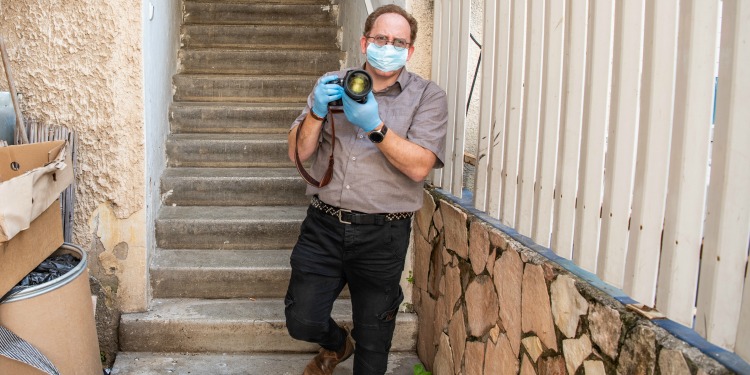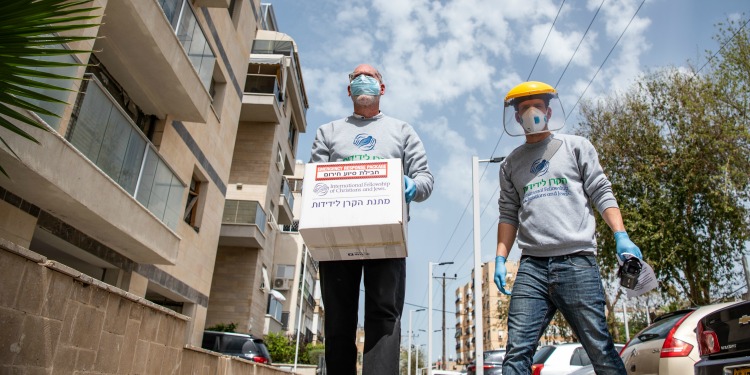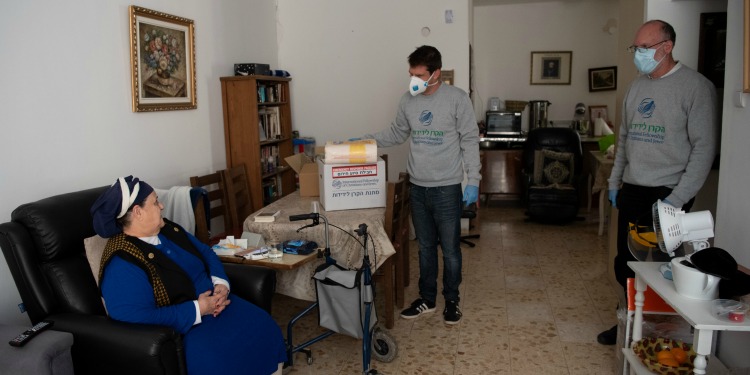We Won’t Let the Needy Suffer
The Fellowship | March 25, 2020

Today I was capturing, in photos, staff members from the International Fellowship of Christians and Jews – I call them helpers – delivering food boxes to the elderly in the Israeli town of Bat Yam.
Right now The Fellowship is feeding tens of thousands of the most vulnerable in Israel, those who can’t or are not allowed to go outside due to the coronavirus quarantine.
The coronavirus crisis has brought into focus our personal responsibility for the well-being of people around us. With this comes personal risk – every time we go outside, we take both responsibility and risk. Fellowship team members are no exception when they are on duty distributing vitally important emergency response packages.

This is a completely new challenge for them. It’s even harder than during military conflicts when they had to risk their own lives. Never before have the helpers had to consider themselves a potential threat to the beneficiaries. Never before have they had to consider their job a threat to their own family members. However, through the years of their dedicated humanitarian work they have developed a mentality of, “If I’m not doing it, who will?” For the helpers, there’s no question of whether or not they will do their job. Their job has never been easy, and right now it just requires more safety measures to be taken.
As we made our rounds, we had to take precautions – a lot of precautions. We delivered the boxes with protective masks and gloves on. We kept a safe distance. We never used elevators, even though the boxes were heavy and the people in need of help sometimes lived on higher floors of apartment buildings. My own extra step in preparation for this photoshoot was to shave off my beard, in accordance with the instructions that protective masks only work properly once a face is shaved.

All the elderly we visited are feeling lonelier than ever. They all wanted us to stay longer and talk to them a bit more. That’s what the volunteers had always been doing to ease the loneliness of old people, and now all of a sudden caring for these people meant that we had to apologize and end our conversations with them quickly. Those were heartbreaking moments. I could almost hear the silence filling their rooms as the doors closed behind us as we departed – or, even worse than silence, we would hear only the TV in the background, bringing more news about the virus, the threat, the crisis.
My job these days is to document the crisis response. This is something quite different than the general media agenda. I think it’s very important to show that there are people out there on the front lines, fighting against this outbreak, that there are folks out there who won’t let the needy suffer. This is where we can find hope amid the suffering.
-Arik Shraga
